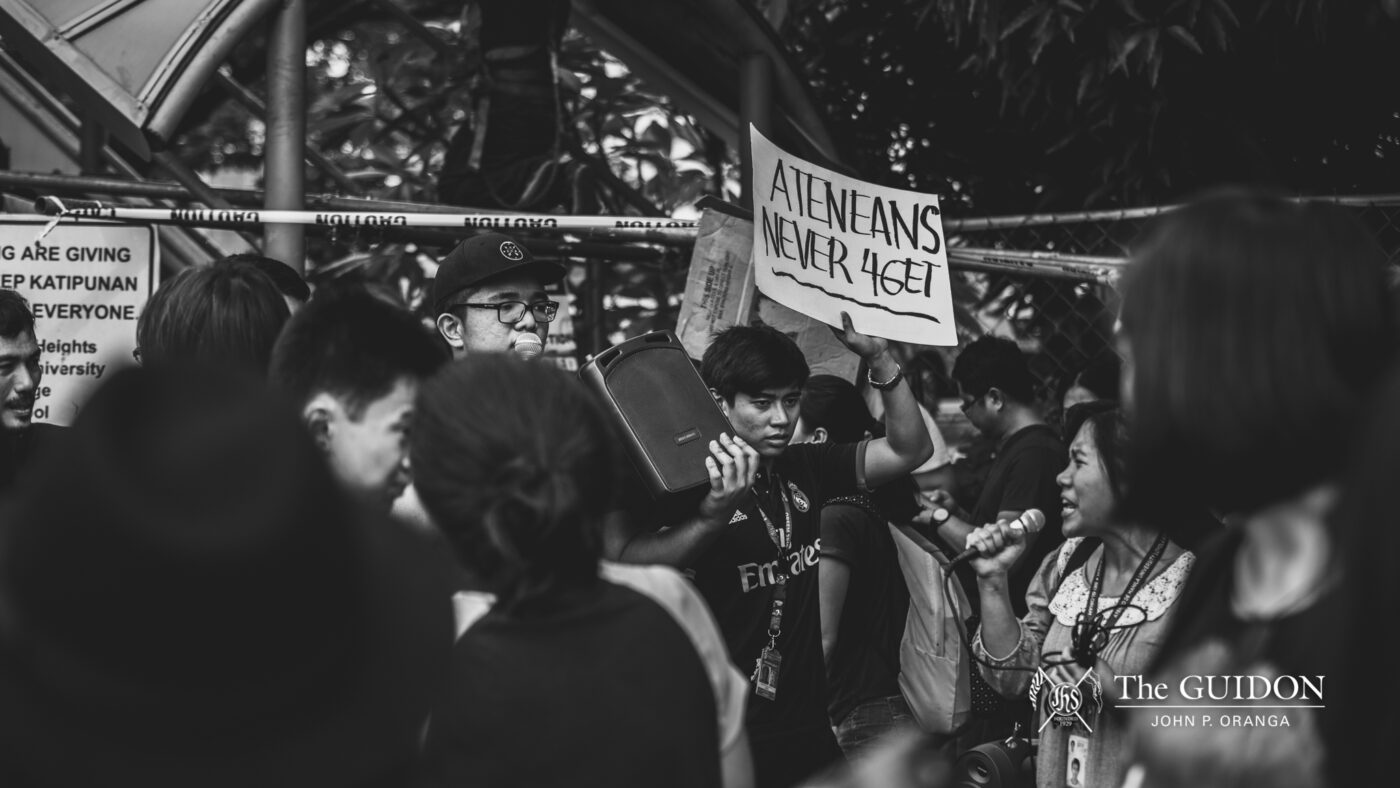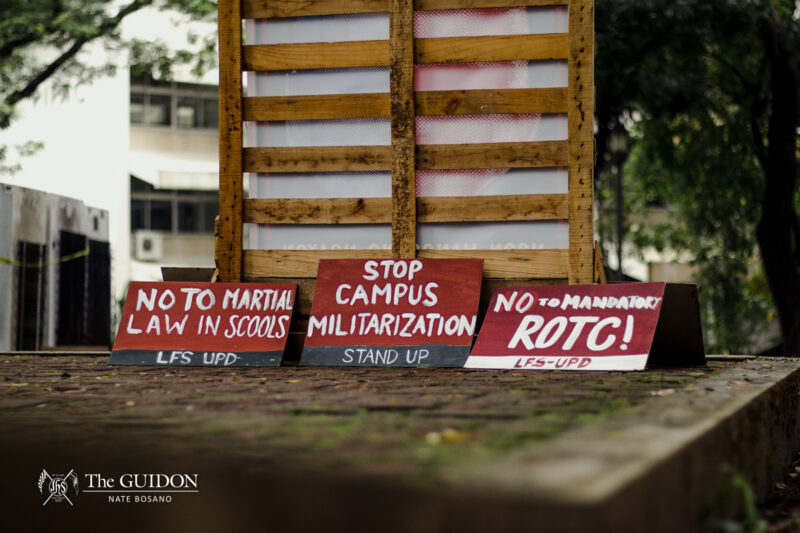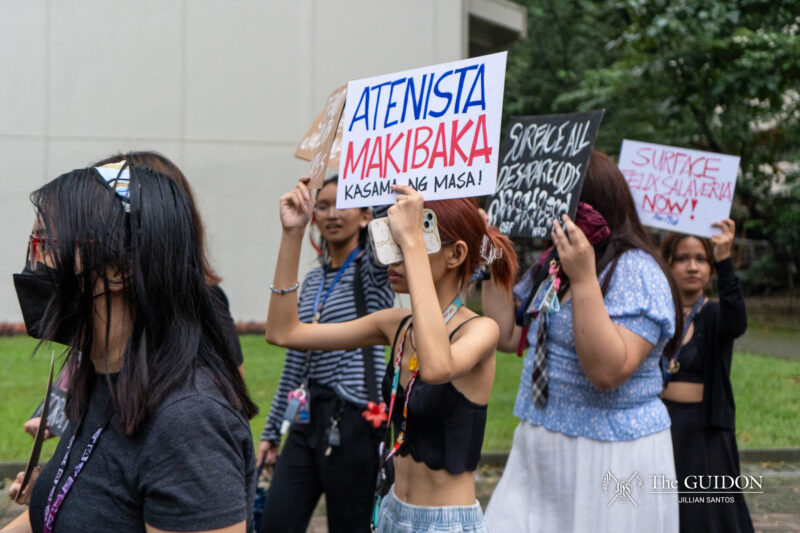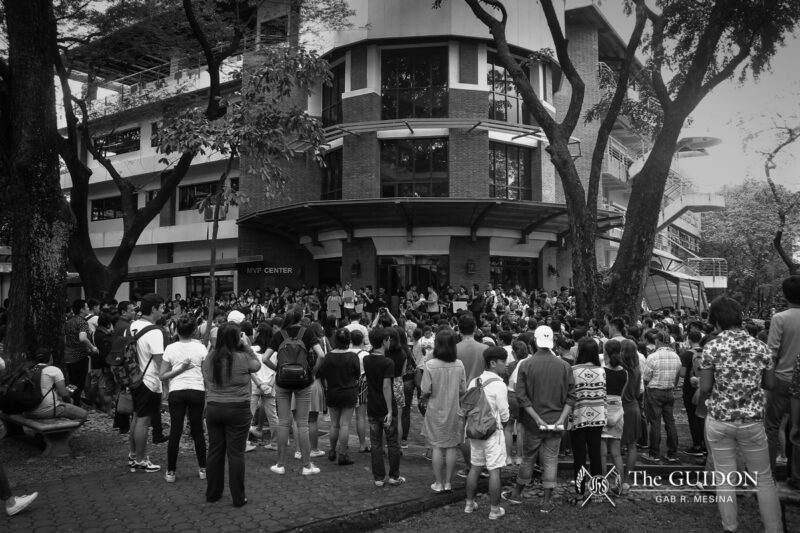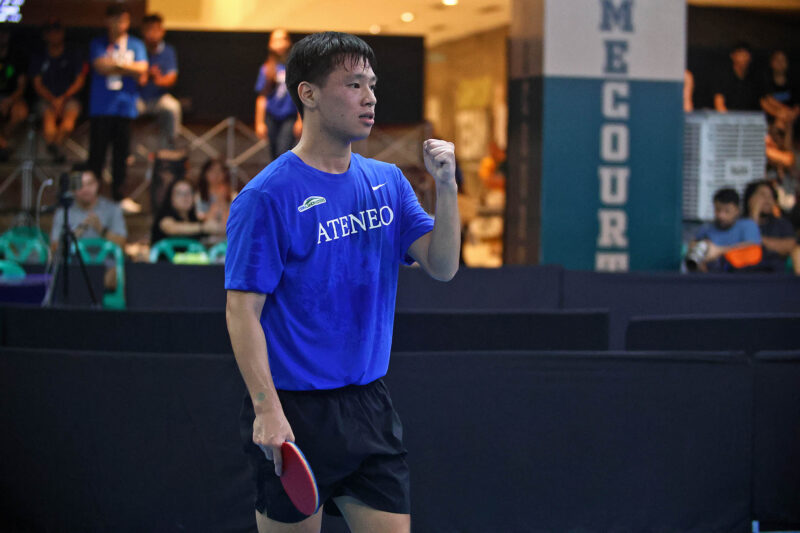The Ateneo de Manila University purports to be a Filipino, Christian and Jesuit educational institution. The education which it provides for its students — to the few who can afford it, use it or survive it — purports to be a liberal education. Without delving into the meaning of those terms “Filipino”, “Christian” and “Jesuit”, and without criticizing, for the moment, the contents of this “liberal education,” let us briefly focus our attention on the meaning and role of a liberal education in the formation of the universal man.
An examination of its historical and etymological origins will reveal that a liberal education was the type of intellectual schooling that freemen and aristocrats of Ancient Greece could afford for themselves and their children by virtue of their autonomy and self-sufficiency. The concept of a liberal education underwent some expansion in the curriculum of the medieval Christian college and university, so that today, the concept of a liberal education refers not so much to the education only for “free men or aristocrats but primarily to an education that liberates man from the evils of ignorance, ill logic, worldliness, lack of insight,” and among other things, narrow-mindedness. A liberal education as we know it today does not claim to teach the student the technical skills which he as a graduate will find useful in his chosen career. But it does purport to develop in him the knowledge and habits of mind with which he can best choose his career, acquire his technical skills, and address himself as a technocrat and a human being to the exigencies of his own human society and natural environment. A liberal education, by exposing the student to a variety of career material, seeks to cultivate in the student the ability to think in universal terms — the ability to investigate for facts, to see things in the totality of their contexts, and to make the necessary value judgments or decisions in a logical and properly human fashion.
The Ateneo de Manila University claims to be a liberal education institution.
But the Ateneo de Manila University exists and will continue to exist only within the context of the present Filipino society. The exigencies in this present Filipino society have become such that everything that, in one way or another, may relieve tensions or may be responsible for them deserves the closest and most untiring scrutiny. The Ateneo liberal education cannot be exempted from this examination. The movement towards Filipinization, Nationalism, and Social Awareness constitutes only a fraction of the major changes called for in the Ateneo education.
A liberal education teaches one how to think. But for the liberally educated Atenean, the need is no longer for him to know how to think, but for him to know what to think about. The principles of good thinking are universal — they are and should be applicable to and for every human being (or so we have been made to believe). But good thinking cannot exist in vacuo, for thinking can only be judged good or otherwise when it addresses itself to the concert situation — the particulars — demanding a solution or a decision. In the same way, a liberal education cannot forever claim to liberate the student if all it does is to imprison him in an ivory tower of universals and principles and abstractions. Liberation or freedom — even in education — is relative. A liberal education can only claim to the truly liberal if and only if, after freeing the students from ignorance and narrow-mindedness, it directs him to apply himself knowledgeably and open-mindedly to the particular situation calling for concern or solution. Too much of the particular can imprison the mind in either ignorance or narrow-mindedness. But too much of the universal can also imprison the mind — this time in more insidious fashion, under the guise of “liberal education” — in either irrelevance or elitism. A liberal education that fails to address itself to the needs of human society in which it finds itself is hardly the right education and all universal principles — which were and are evolved only through a study of particular situations — can only validate themselves if and when they are successfully applied to particular situations calling for mediation. To know universal principles is one thing. To know particular situations is another. And to know which universal principles are applicable to specific concrete situations and to be able to make these principles work in the concrete is an entirely different matter.
Is this synthesis of universal and particular the form of education which students are receiving in the Ateneo?
“Nationalism — economic, political, social or cultural seeks to assert the sovereignty and interests of the Filipino nation as against all foreign and local attempts to exploit, oppress or stifle a nation’s growth.”
And since it is just as universal a principle to be concerned about the welfare of “the other,” any education that imparts to a small population of economically superior students the values and skills proper mostly to the interests and workings of the economic elite is liberal education in its most primitive and unrefined sense — education for the autarchy, the economically self-sufficient, the aristocratic, the bourgeois.
Has the Ateneo education, then, been too true to its objective of training students for “leadership”? How much truth is there to the allegation by certain quarters that the Atenean education is elitist and irrelevant to the greater masses of the Filipino society?
What is the concrete Filipino situation to which the Ateneo education must reorient and apply itself?
There are many currents in the concrete Filipino situation, but perhaps the most important and the most pervasive is the current of militant nationalism. We shall concern ourselves with militant nationalism since it has much to do with the direction of efforts and competence in the interests of the greater masses of the Filipino people (implied, of course, is that he who is basically concerned about the interests of his own small economic class is elitist — aristocratic — and therefore, liberally “uneducated”).
Nationalism is a movement, and one with historical roots. Nationalism can exist only as a movement if and since there are persons in this country with nationalism as their motive disposition, basic attitude, or way of life. Nationalism — economic, political, social or cultural — seeks to assert the sovereignty and interests of the Filipino nation as against all foreign and local attempts to exploit, oppress or stifle the nation’s growth. Nationalism is not the antithesis of internationalism or the “one-world outlook.” Nationalism is, in fact, the prerequisite for true internationalism, for this “brotherhood” of all nations can exist only when international relationships are founded on mutual respect and fair exchange, on the recognition of national sovereignty despite international interdependence. Nationalism will oppose all forms of “internationalism” that clock the exploitative and manipulative policies of foreign powers — or this “nationalism” cannot be called true nationalism at all.
Nationalism both as a movement and as a disposition is a two-sided coin: the true nationalist incorporates both facets of nationalism into his own character and actuations. The Filipino nationalist is basically pro-Filipino. He advances or seeks to advance the interests of the Filipino people in general and — in the context of democracy and the long history of the exploitation of the masses — the interest of the Filipino Masses in particular. The Filipino Nationalist, then, is both anti-imperialist (against foreign oppression and manipulation) and anti-feudal (against local oppression and manipulation, which is best embodied in the paternalistic yet exploitative relationships of landlords, warlords and abusive labor or political practices). The true Filipino Nationalist must eventually be one who espouses the cause of “national democracy” though he may choose to call himself an economic nationalist as opposed to a political nationalist, or though he may choose to call his goals other than “national democracy”.
Within the context of the Ateneo as an educational institution, nationalism can hardly be said to exist as an established and recognized movement, though its stirrings have been felt in the sentiments and organizations of a few more politically conscious students. The Atenean leader should consider the elevation of nationalism to the status of both disposition and movement as his supreme objective within the Ateneo student body. His work and his thought should be directed toward the establishment of strong and practical nationalist sentiments among his own co-Atenean. The student leader cannot afford to be only a “charismatic leader nor only an organization man: he must be a model student and an effective politicalizer, as well.
How, then, does nationalism fit within the framework of the Atenean’s liberal education?
Nationalism must be presented to the Atenean as two distinct yet inseparable elements: competence and direction. Nationalism involves and requires competence — the ability to perform and to deliver professionally in school, out of school and later, in one’s own chosen career. Incompetence and irresponsibility render one useless or ineffective in the promotion of nationalist sentiments by destroying one’s credibility before others. Bungling, then, is to be deplored not so much as a personal fault but as a fault that compromises the community of “Technocrats” necessary for the determination of good and workable policy decisions. Nationalism, above all, involves and demands the right direction — it demands that he who performs and delivers professionally must do so in the interest of the greater masses of the Filipino people. For the Atenean, competence in his chosen career has long been equated with the adequate measure of nationalism. “I serve my country by being a good manager,” is the usual tune. “Therefore, leave me alone to study!” Nothing could be farther from the truth. Competence without the proper direction is not nationalism at all — it is sheer opportunism or blind prostitution to foreign or local explorers of the people.
The Ateneo has had a long history of emphasis — or over-emphasis — on academic competence and academic standards. This appears to be the inevitable residue of the institution’s commitment to the training of students “for leadership” — unfortunately, however, only of the upper crust of society. Competence has not been wedded to direction, and we thus find economic or political magnates vocal in their condemnation of foreign economic manipulation but owning vast tracts of misdeclared rice lands or hundreds of shares in strike-torn companies. It is time that the Ateneo and the Atenean realized the need for redirecting the Atenean liberal education toward the service and upliftment of the greater masses of the people. It is also time that concrete measures were taken to make the Atenean and the Atenean educator realize the gravity of the Ateneo’s isolation from the mainstream of the Filipino life, conflict, culture and aspiration.
Nationalism is an objective within the Ateneo, Filipinization and Social Awareness are components of this objective, and are means toward the attainment and establishment of this objective.
Filipinization, as defined in the article “Down from the Hill,” is basically a move to make the Ateneo and the Atenean education more relevant to the needs of the times, a move to address the academically superior brand of education that we receive in the Ateneo to the problems and conditions of the Philippines that, for one, make the Ateneo basically a school for the colonic elite. This is the conceptual definition of Filipinization. Operationally, (concretely) it involves a number of things. It involves the installation of competent Filipinos in as many administrative and policymaking positions in the University as possible — in lieu of foreign or undesirable administrators and policy makers. Administrative and policy-making positions are areas where Filipino values and Filipino orientations may be suppressed or enunciated and are areas where the administrators themselves gain experience in the jobs to which they have been assigned. Preferably, then, these positions deserve to be Filipinized if and when possible. The symbolic value of Filipinos at the head of a Filipino institution can neither be exaggerated nor underplayed.
It involves the Filipinization of value-oriented courses like History, the social sciences, English, theology and philosophy — again, if and when possible, and for the same reasons given above.
It involves the Filipinization of value-oriented courses like History, the social sciences, English, theology and philosophy — again, if and when possible, and for the same reasons given above.
It involves the changing of the curriculum, the deletion or addition of courses, insofar as these measures contribute to the student’s knowledge of and ability to deal with the pressing social, economic and political problems plaguing Filipino society. Filipinization involves the removal of all courses that “universalize” the Filipino student to such an extent that he finds himself more equipped to deal with the particularities of foreign countries than with the more immediate exigencies of his own society. Filipinization involves the addition or establishment of courses that will give the student more knowledge about his own people and their way of life, as well as the ability and the tools with which he can better relate to the greater masses of his countrymen.
Filipinization will involve the criticism of all sectors of the academic community — student, faculty, administration — whenever acts inimical to the interest or image of the Ateneo as a redirected institution are propagated. Filipinization will involve severe criticism of the student body whenever extravagance, irresponsibility, ultra-liberalism, uninvolvement or irrelevance become part of its campus life. The faculty shall be criticized whenever and wherever it provides anemic or non-nationalistic or anti-Filipino “education” to the students, and whenever it fails to provide the necessary support to student projects that are relevant and integral to social awareness or nationalism. The administration shall be criticized should it seek to make narrow legalism the basis for its actuations, should it fail to see the significance of the students’ points of view, or should it seek to establish “Filipino” diplomacy or “American” paternalism as the method of dealing with conflicts within the academic community (in other words, students have to be good or else!).
“It is foolish to talk of nationalism without bringing the pro-Filipino direction into the picture. But it is idle to speak of being pro-Filipino when one does not know how and why the Filipinos — more particularly, the impoverished and exploited masses — live the way they do.”
Perhaps the most important step to be taken toward the definition of what is Filipino, or the definition of what is pro-Filipino, is the step of social awareness. Social awareness has again been long associated by the Atenean with the awareness he receives of the conditions of his society in the midst of his academic preoccupations. In other words, social awareness is awareness through book-learning, through the mediating safety of distance, through the softening experience of narration or hearsay. Again, nothing could be farther from the truth. Abstractions, words and ideas do not have the motive power of flesh-and-blood reality, and it is precisely this tangible reality that the Atenean liberal education has insulated the Atenean student from. The Ateneo education teaches the student the mechanics of economy but it never shows him the effects of his own future economic decision on the livelihood of the barrio sari-sari storeowner. The Atenean must be exposed — and exposed physically — to the reality of the “backward” Filipino society.
It is foolish to talk of nationalism without bringing the pro-Filipino direction into the picture. But it is idle to speak of being pro-Filipino when one does not know how and why the Filipinos — more particularly, the impoverished and exploited masses — live the way they do. It is high time that the Atenean do away with the “universality” of concepts or abstractions, the “universality” of suffering (“I know what it is to suffer like the masses!”), and the “universality” of social awareness as attained from that safe distance. It is time that he went out to live with them and work with them so that, in the end, should he end up in the comfort of an executive chair with the power of decision in his hands, he may know what it is to be underprivileged and, hating poverty as he may hate foreign economic manipulation, he may choose to do only that which will be in the interest of those who have always had little throughout their lives.
Inasmuch as social awareness is something that cannot be forced into the Atenean but something that grows within him, it is the duty of the student leader and the faculty member to continually provide the student with opportunities for actual involvement in social or political action. Social awareness is but an instrument for the calling forth of true nationalist sentiment, and as such, it must be directed toward giving the student a measure of practical work (competence) and social political action (direction). Social awareness, finally, should not only make the student cognizant of the ills and problems of his society, but also cognizant of its assets and potentialities which he should learn to appreciate, conserve and develop. For it is not by fighting enemies alone that a people can win a war, but by developing in themselves the skills and assets that will make them masters of their destiny. It is unfortunate, however, that this can be said more for us, the privileged, than for the more numerous and less privileged masses who are our brothers.
“Filipinization will involve the criticism of all sectors of the academic community — students, faculty administration — whenever acts inimical to the interest or image of the Ateneo as a redirected institution are propagated.”
Nationalism, then, is the objective of our campaign. It must be both anti-imperialist and anti-feudal if it is to be true to its historical role.
Nationalism is to be presented as both competence and direction. Since the Ateneo, an upper-class institution, has long emphasized competence, it is our role to (over) emphasize the complementary concept of direction — “for the greater good of the greater masses of the people.”
Filipinization is an instrument for making the Ateneo education more practical (as far as competence is concerned) and more Filipino-oriented (as far as direction is concerned). We shall welcome the contribution of foreigners and non-Filipinos, but they shall have to assume subsidiary roles. For symbolic and developmental reasons, Filipinos should occupy as many administrative and policy-making positions as possible. They are not free, however, from whatever searing criticism their actuations may deserve. Filipinization will also involve criticism and self-criticism of both faculty and studentry to assess and to pursue the direction and relevance of all activities etc.
Social awareness, finally, is both vicarious and experimental. We shall try to play up the experiential-participational mode of awareness and criticize all attempts to hide behind academics as hypocrisy and uninvolvement. This movement must be given full support by students, faculty, administration, labor, etc. social awareness must be aimed at knowing both the bad side and the good side of Filipino society as it exists today. Social awareness is the supreme form of “relevance” as enunciated in the step towards Filipinization.

